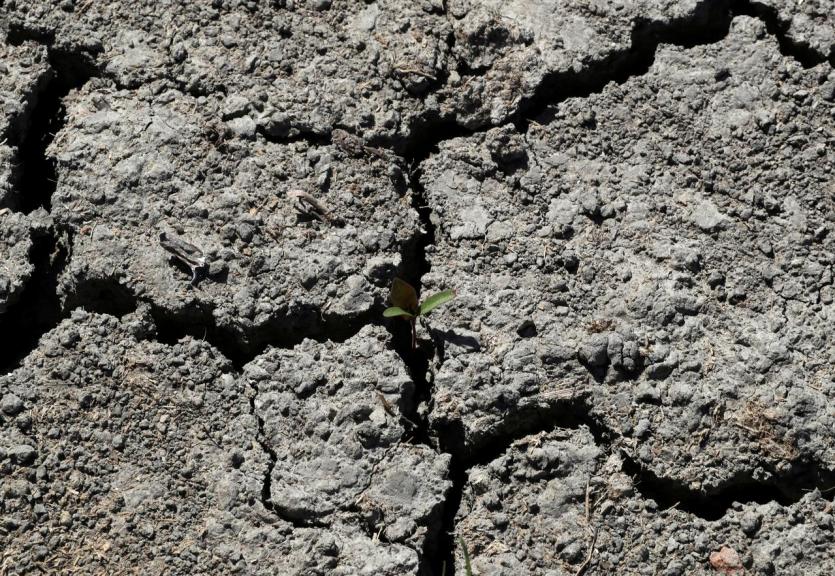A corn sprout is seen among dry earth in a field belonging to Belgian farmer Joel Van Coppenolle as Belgium is undergoing it's dryest April-May period since the end of the 19th century, according to local media, in Diksmuide, Belgium May 28, 2020. Photo:Reuters
Belgium struggling with worst drought in 120 years
The World Daily | News Desk | MAY 31st 2020
Belgium’s recently seen some of its worst droughts in 120 years. Local farmers are counting their losses and wondering what will happen next. According to climatologists, climate change contributes to drought in Belgium.
After the restrictions related to SARS-CoV-2 coronavirus in Belgium led to a disruption of food supply, closed restaurants, and the limited purchase of certain products, the local farmers have another concern. It is the recent onset of severe drought.
This year's May, in Belgium, was the driest since the beginning of the 19th century. These weather conditions hampered crop growth and reduced yields in the West Flanders province.
On Monday, the Governor of the province Carl Decaluwe banned collecting water for irrigation from the IJzer River, after its level dropped below 2.9 meters.
“We had to do it, otherwise the damage would be irreparable,” said Decaluwe, adding that the prolonged drought would cost tens of millions of euros. “We have not seen such a low water level in 30 years, and this year's May is the driest in 120 years. This is not a good situation,” he added.
“I usually manage to get 50 to 60 tons of corn from one acre. Now I will have to be content with only half of it, but only if it starts to rain,” said Joel Van Coppenolle, a farmer from Kaaskerke. In his field, the corn is barely half as much as it usually should at this time, and the ground is dry and cracked.
In some regions of Belgium, drought has been repeated for four years. According to scientists, they are driven by climate change that disrupts the functioning of jet streams. This is an intense, quite narrow, and almost horizontal stream that transfers from west to east huge masses of air in the Earth's atmosphere.
“With current climate change, jet stream is less active because the temperature contrast between the North Pole and the more distant regions of the globe is smaller,” argued David Dehenauw of the Belgian Royal Meteorological Institute. In his opinion, the jet stream activity will decrease, which means that we can experience longer periods of the same weather.
“It can rain for weeks, but we can also have several weeks of drought, as we have seen in the last three or four years,” he said.
© The World Daily 2020 | News Desk






